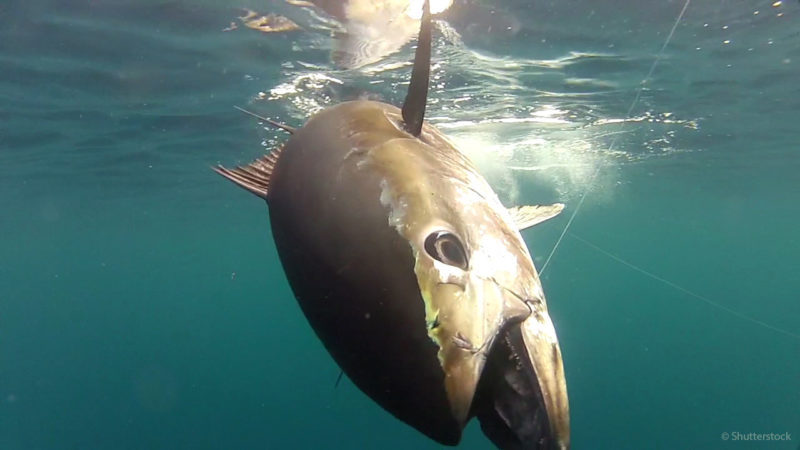Many recreational anglers are enticed by the thrill of catching a giant tuna that can weigh up to 1,000 pounds, with the challenge to land it sometimes going on for hours.
A greater challenge is managing tuna fisheries, a task NOAA’s Atlantic Highly Migratory Species Management Division is responsible for.
“There are approximately 20,000 recreational HMS permitted vessels, 3,500 commercial, and 3,500 for-hire permits issued annually,” says Jennie Lyons, NOAA public affairs deputy director. “Although recreational vessels may have less impact on a marine resource as an individual, sheer numbers of vessel can have an immense impact.”
Recently five recreational boats tuna fishing near Oregon Inlet off North Carolina found out just how seriously the NOAA HMS division takes the permitting process.
The crew of the Coast Guard cutter Rollin Fritch found the five recreational vessels fishing for highly migratory species without federal fisheries permits. The violations were discovered during the routine boarding process, according to information from the Coast Guard, which did not release the names of the boats or operators.
Recreational fishing in federal waters without the appropriate permit violates the Magnuson-Stevens Act, and fishermen found in violation of this act can be subject to fines up $3,750.
“Applying for and maintaining a Federal Fisheries Permit, and abiding by appropriate catch limits facilitates NOAA’s ability to regulate overfishing, keeping the species healthy,” said Lt. Brittany Fifer, commanding officer of the cutter Finch said in a statement announcing the enforcement action.
“The Atlantic bluefin tuna fishery poses management challenges because of the unpredictable migration pattern of the stock as it travels south each year,” according to the HMS division.
“We use the permits to collect/assess catch and effort data, which are used to determine health of the stocks, compliance with domestic and international obligations, as well as the economic and social contributions and impacts these fisheries have,” said Lyons.
“The United States is committed to sustainable, science-based management of Atlantic highly migratory species, including bluefin tuna.”
“Permits and the various requirements — retention limits, reporting, seasons, safety gear, etc. — level the playing field across the broad diversity of fishery participants,” she said.
To ensure that quota is met but not exceeded, in 2003 NMFS began requiring private anglers to get vessel permits to fish for regulated HMS in the Atlantic, Gulf of Mexico and U.S. Caribbean waters. Previously, the permits were required only when fishing for tunas.
The federal permit is required for private recreational boats that fish for Atlantic tunas, swordfish, sharks, blue and white marlin, sailfish and spearfish. It covers all passengers onboard. A separate HMS permit covers charter and head boat customers.
Recreational Atlantic bluefin tuna fishermen with Angling category highly migratory species permits may not retain, possess, or land bluefin measuring 73 inches or greater for the rest of 2019.
The final area closure for trophy bluefin tuna went into effect in the northern area trophy fishery June 27, 2019. NMFS closed the Gulf of Mexico and southern area trophy fisheries earlier this year. Each closure was made based on the best available landings information showing that the subquota for each area had been reached.
Fishermen may still catch and release or tag and release bluefin tuna of all sizes, subject to the requirements of HMS catch-and-release and tag-and-release programs. All bluefin tuna that are released must be handled in a manner that will maximize survivability and without removing the fish from the water.
Under the international Atlantic Tunas Convention Act, it is illegal to catch Western Atlantic bluefin by methods other than rod and reel, hand-line or harpoon, NOAA says. According to NOAA, Atlantic bluefin tuna need to be carefully managed because they are extremely valuable and thus vulnerable to overfishing.







